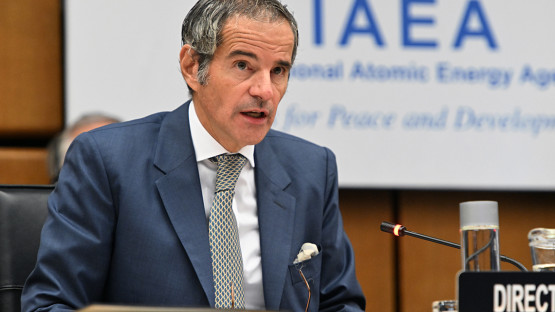BAKU /Trend/ – The International Atomic Energy Agency (IAEA) has confirmed that recent attacks on Iranian nuclear facilities did not result in any radiation leakage beyond the affected sites, IAEA Director General Rafael Grossi stated during an address to the IAEA Board of Governors, Trend reports.
“No damage was detected at the Fordow enrichment plant or the under-construction Arak heavy water reactor,” Grossi noted. He added that the Bushehr nuclear power plant and the Tehran research reactor were also unharmed by the recent attacks.
However, damage was sustained at a nuclear site in Isfahan. “Four buildings were damaged in Friday’s attack: the Central Chemical Laboratory, the uranium conversion plant, the Tehran reactor fuel fabrication plant, and the UF4 metal conversion plant, which was also under construction,” he reported.
Grossi emphasized that “radiation levels outside the facilities remain unchanged,” as is the case at the Natanz site, where the absence of radiological impact on the population and the environment has been previously confirmed. “The level of radioactivity outside the Natanz facility remains normal, indicating no external radiological impact from this incident,” he said.
Grossi highlighted the importance of transparency and information sharing in the current situation: “It is crucial that the IAEA receives timely and regular technical information about the facilities and sites. Without this data, it is impossible to accurately assess the radiological situation and the potential impact on people and the environment, as well as to provide necessary assistance.”
He also acknowledged the cooperation of Iranian authorities with the agency: “I confirm the information exchange and interaction between the Iranian authorities and the IAEA.”
Grossi assured that the agency will maintain its presence in Iran: “The IAEA is present and will continue to work in Iran. Verification inspections will resume as soon as security conditions allow, in line with Iran’s NPT obligations.”

